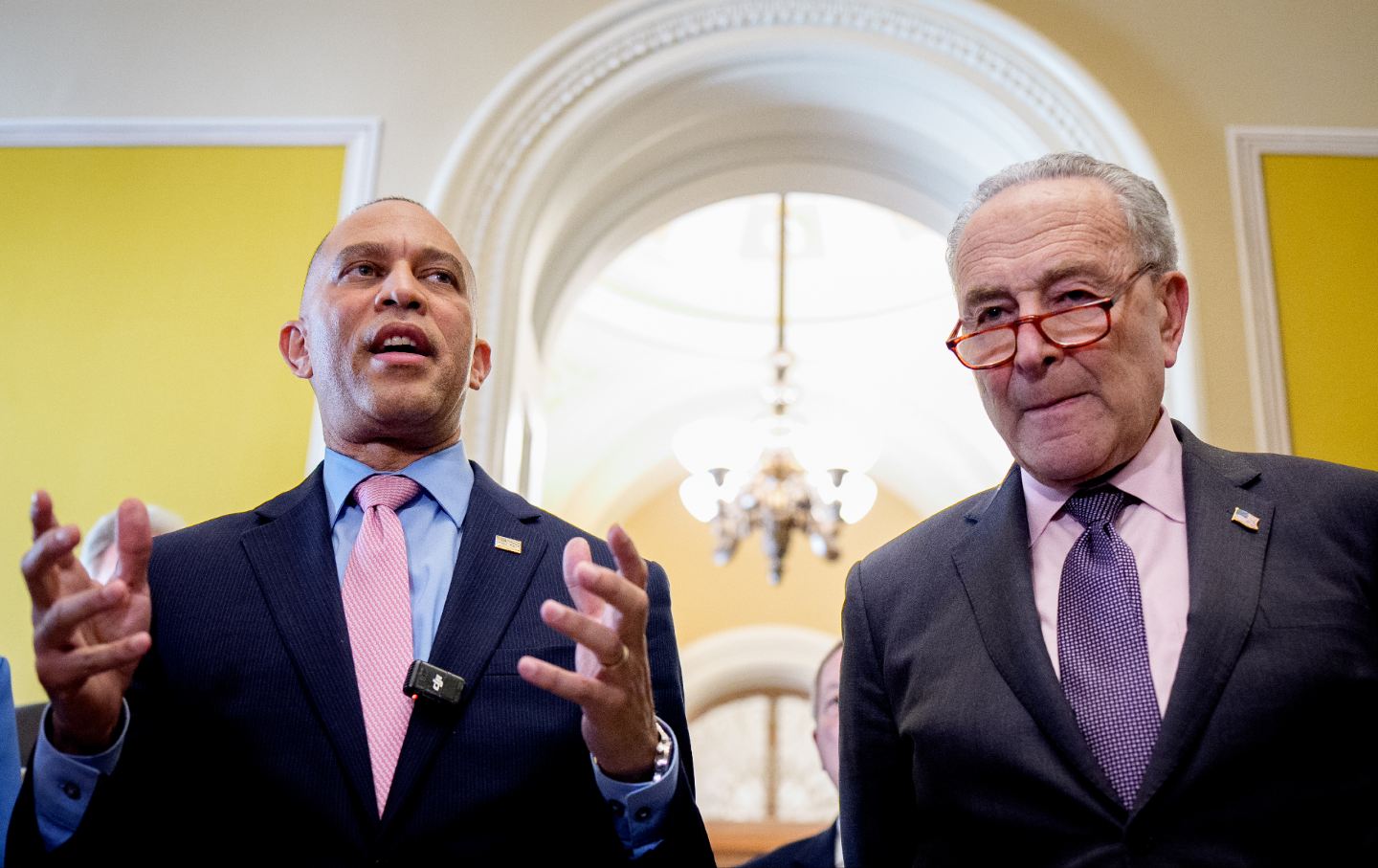Politics | April 29, 2025
The Democratic Party continues to struggle with its reliance on technocratic managerialism in its approach to politics. This perspective was highlighted by House Minority Leader Hakeem Jeffries, who questioned the party’s leverage.
Despite recognizing the potential risks posed by Donald Trump, Democrats have failed to effectively counter his actions. Senate Minority Leader Chuck Schumer’s recent decision to relinquish the party’s remaining influence in the government funding battle has compounded this issue.
Jeffries likened the Democratic strategy to that of baseball player Aaron Judge, emphasizing selective action. However, the effectiveness of such a strategy without adequate leverage remains questionable.
Critics suggest the Democratic Party’s failure stems from both a lack of style and substance. The party has traditionally relied on projecting stability and competence but has struggled to offer compelling political ideas and connect meaningfully with voters. Schumer’s outlined response strategies—oversight, litigation, legislation, and communications—seem insufficient against the challenges posed by Trump’s administration.
Historically, the Democratic Party has focused on technocratic governance. This approach gained traction during the 1990s, emphasizing pragmatic solutions over ideological battles. This strategy brought electoral successes such as Bill Clinton’s presidency, but over time, it led to diminished efficacy against rising adversarial political forces.
The Clinton era emphasized competent management over engaging with deeper societal issues. However, this reliance on expertise and technical solutions often ignored broader economic disparities and social injustices. The party’s commitment to technocratic solutions persisted over the years, even as dissatisfaction and economic inequality grew.
During Obama’s presidency, initial hopes for change faltered as his administration pursued pragmatic, bipartisan compromises rather than bold reforms. This approach, while avoiding confrontation, failed to address deep-rooted issues effectively.
Recent polls indicate a significant portion of Democratic supporters prioritize opposing Trump rather than advancing their own agenda. However, the party has struggled to clearly articulate its priorities. Previous attempts to challenge Trumpism focused on centrist consensus without strong ideological convictions.
In the aftermath of recent electoral defeats, there are signs of internal criticism and calls for reevaluation within the Democratic Party. However, a comprehensive transformation in strategy and outlook remains elusive. The party’s identity crisis suggests the need for a deeper rethinking of its goals and approaches to governance.
